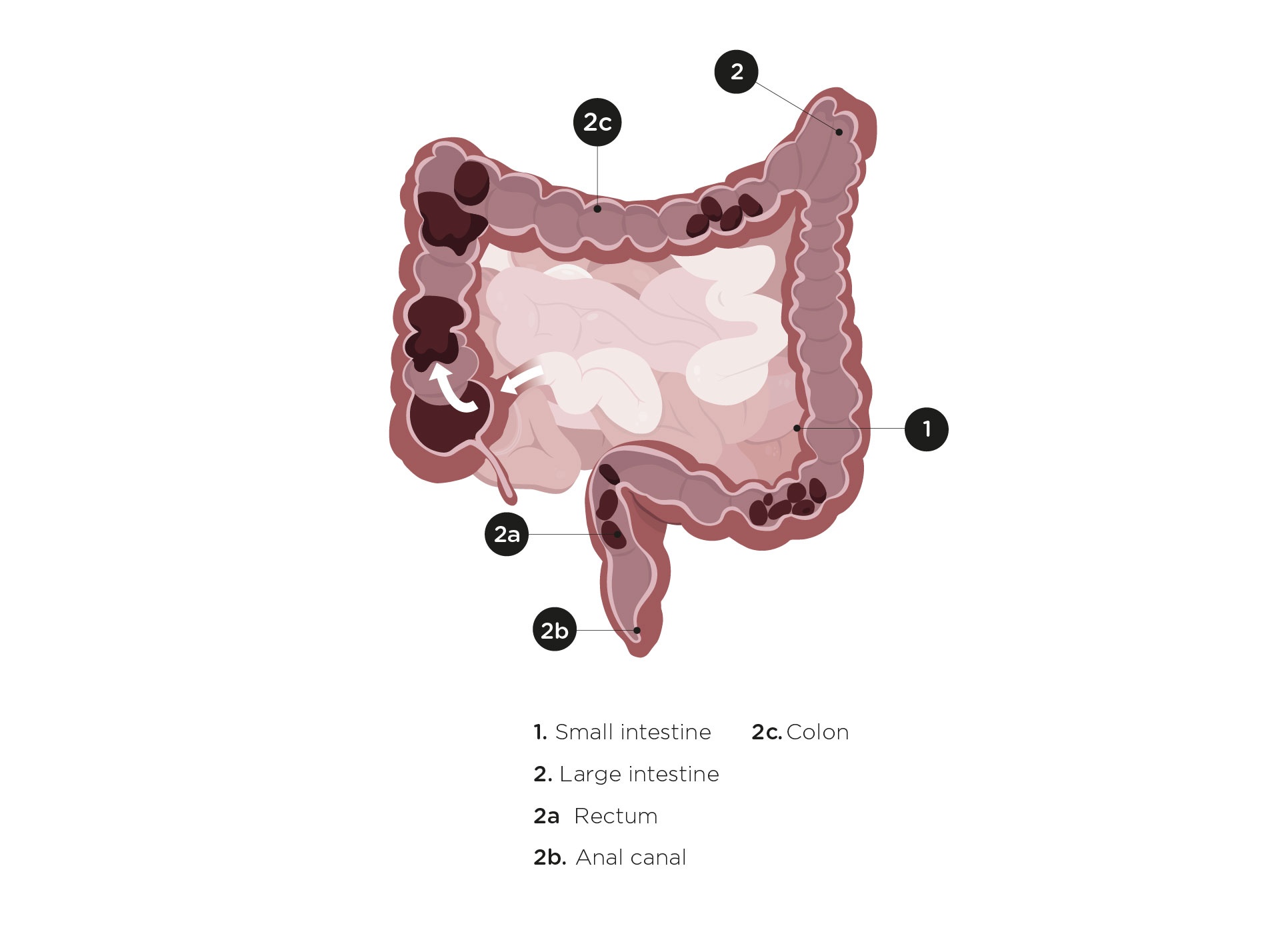If the stomach isn’t working, it won’t waste time in letting you know. Maybe it's time to listen to your stomach to hear how things are going in order to understand and treat it a little better? Follow our mini-series on the stomach.

Or to widen the perspective a little bit – it's about the intestinal system. The stomach is just a storage bag – the first stop after the mouth and esophagus, through which food passes. When the food is passed down to the next area of the body, sophisticated chemical processes take place that really affect how well (or poorly) we feel.
A look into the intestinal system
Let's take a look at this fascinating part of our body. The intestinal system consists of the very long but medically termed “small” intestine, the appendix and the colon. Measuring between three to seven meters, the small intestine folded and pleated, making several turns inside of us, allowing our bodies to accommodate it. The impressive length is for fulfilling an important task: to separate each piece of food we consume into small, fine pieces – and space is needed to handle that. Harmful substances are neutralized, useful components are retained and transformed into energy to benefit the rest of the body.

It’s normal to become a little drowsy after a meal. Don't rush: important work is going on in the small intestine!
Since the purpose of the appendix is still debated, we’ll skip that, arriving at the colon. This is where the real hard work takes place. Not many people know this, but the small intestine and colon are like night and day in appearance. While the small intestine always has a fine sheen, the colon is full of intestinal villi and is quite literally: full of crap.
Sixteen hours of hard work
Final digestion of food takes place in the colon. It will take approximately 16 hours to absorb important minerals properly. The liver then takes over these deposits through the blood, precisely as it does for the small intestine, and ensures these are delivered to the rest of the body. After these nutrients are absorbed, the remainder is eliminated through the rectum and into the nearest toilet.
Unpleasant reminders
So that's a brief overview of the digestive process – in the ideal world. But as you know we don't always eat healthy food, under peaceful circumstances. A burger on the fly, a chocolate bar in the car or other quick fixes might be the result of a stressful life, or any life now and then. But worst case it causes heartburn, acid reflux, constipation, vomiting and other unpleasant reminders from the stomach.
How can we settle an acidic or upset stomach? Read the next part in our Bowel school series!
Author: Anna Westberg
Source: ”Gut” by Giulia Enders




